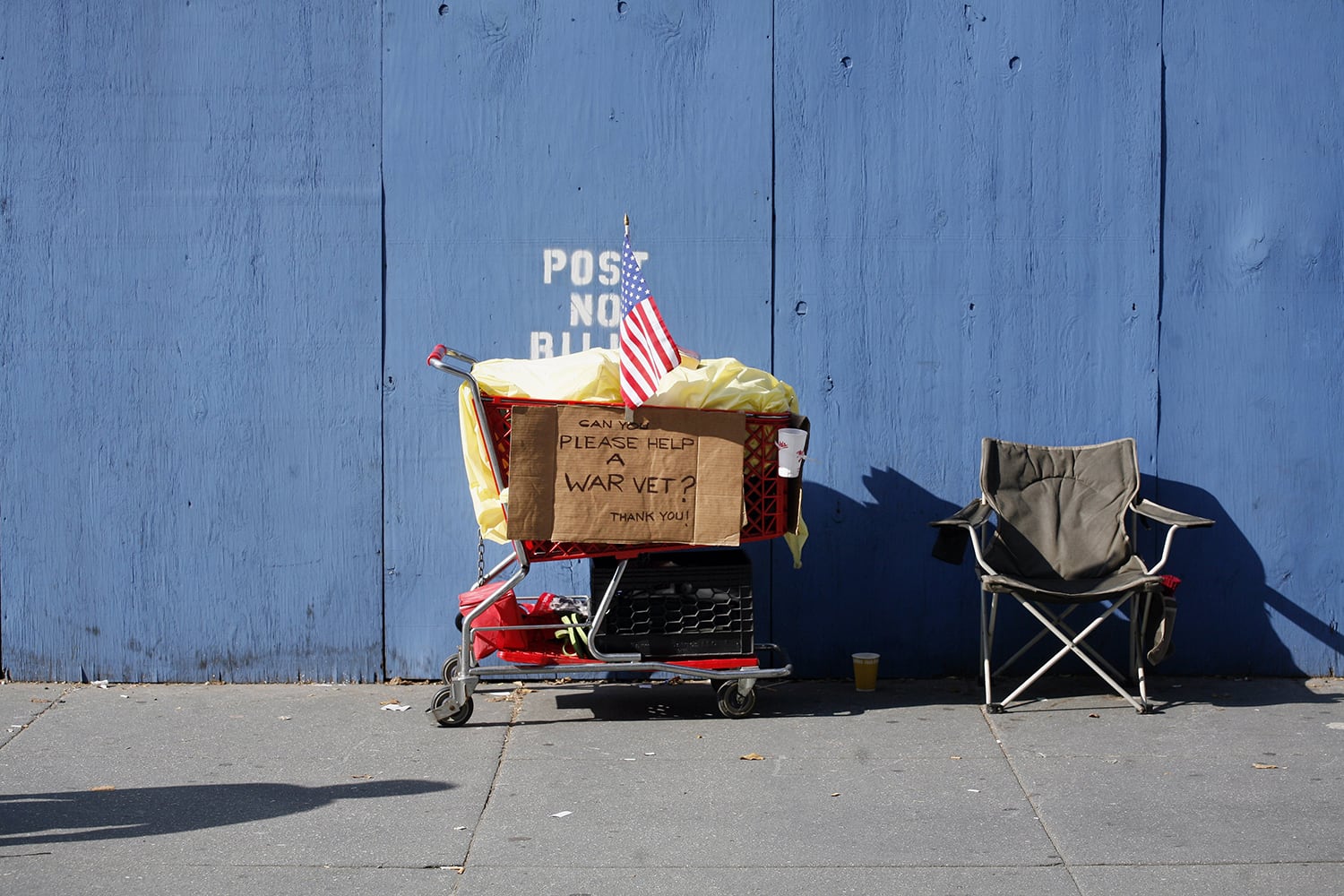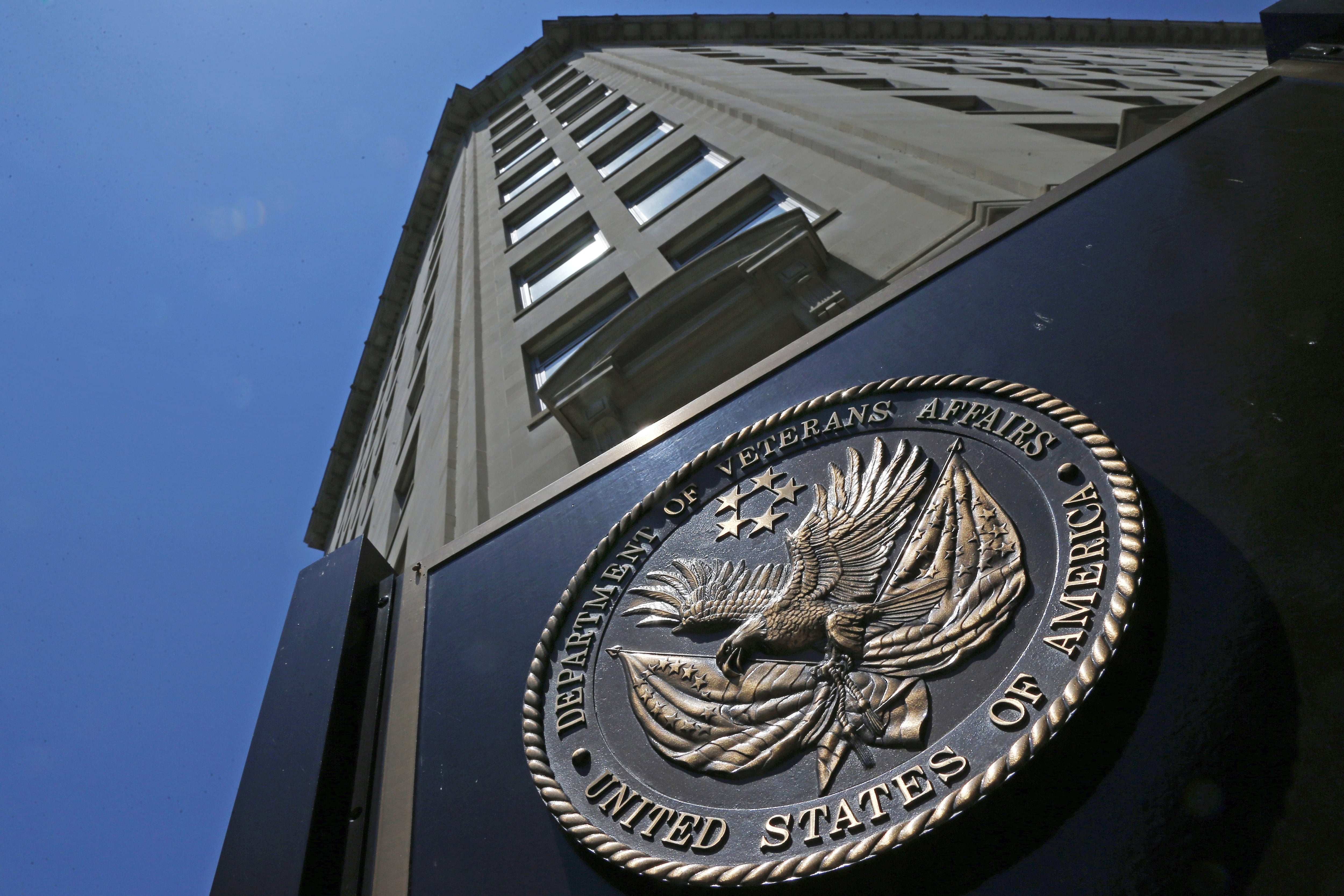With coronavirus pandemic restrictions lifting across most of America, federal officials and housing advocates are hoping their efforts in coming months can lead to a significant decline in the number of veterans experiencing homelessness.
But they’re also already wary of the next looming challenge facing vulnerable veterans: inflation.
“A lot of people right now are thinking about how higher prices are going to impact their clients and what services or resources they’ll have to bring to the table to close that gap,” said Kathryn Monet, chief executive officer of the National Coalition for Homeless Veterans.
“There are people out there already making hard choices. Do I pay for medicine or gas? Do I buy school supplies or pay the utilities? We’re in a difficult moment.”
RELATED

Several hundred advocates are gathering in Washington, D.C., this week to discuss those problems — and potential solutions — as part of NCHV’s annual conference. This year’s event, which runs through Friday, is the first in-person gathering for the group in three years, since the pandemic upended normal operations in communities across the country.
Attendees noted that unlike other jobs that could shift operations to remote locations over the last two years, most of the outreach work done to help veterans experiencing homelessness still had to be done in person.
That has meant long hours and extra stress for the community of helpers.
“We had to learn how to multitask even more than we did before,” said Wendy McClinton, president of Black Veterans for Social Justice, a non-profit providing a variety of housing assistance programs. “And we had to protect our staff, protect our clients, protect their families, and that meant sometimes using resources we didn’t even know we had before.”
Now, advocates are taking those lessons learned and working them into ongoing operations.
In some cases, it means continuing to deliver services over the phone or internet to clients instead of in-person because it provides faster results. In others, it means providing more single-occupancy options to veterans looking for housing, giving them more independence and investment in their situation.
Federal agencies have also made changes in their support services.
On Wednesday, James Rodriguez, assistant secretary for veterans’ employment and training service at the Department of Labor, announced $57 million in grants to community groups to help homeless veterans find “meaningful employment.”
A short while later, Housing and Urban Development Deputy Secretary Adrianne Todman announced a goal of 200,000 new housing vouchers this year to help put veterans in stable housing (there are about 106,000 in use currently).
Because of the new resources, combined with the “return” of advocates to pre-pandemic operations, officials said they see an opportunity to build on past efforts to reduce the number of veterans without steady housing in the coming year.
From 2010 to 2016, the number of veterans experiencing homelessness dropped by nearly half — from about 74,000 to 39,500 — thanks in large part to a dramatic increase in federal and state funding of programs to deal with the problem.
Since then, however, the number has remained largely stagnant. In 2020 — the last year a full point-in-time count was conducted by federal officials, the estimated number of veterans experiencing homelessness was about 37,200, a decrease of about 6%.
Officials saw a 10% drop in the number of veterans using emergency shelter services from 2020 to 2021, but it is unclear how much of that is because of improvements in their housing situations or concerns about using the public facilities in the midst of coronavirus outbreaks.
It is also not clear how much rising inflation could wipe out any of those past gains.
RELATED

Monet said rising rents are the most immediate threat for advocates trying to get or keep veterans in reliable housing. But increased costs for groceries, gas and other services all play a major role in veterans’ finances too.
She said those concerns limit her optimism for how much progress can be made quickly on the homelessness issue.
“We know that the housing market is crazy now,” she said. “So we may just be treading water. And that’s unfortunate, because we do have these big bold goals from the federal government and we’re all working hard to try and encourage all our partners.”
By getting advocates back in the room together this week, NCHV officials are hopeful that they can plan ways around those obstacles and create new momentum.
They also expect that the return of the conference can help spur new connections among all the groups involved, especially since now they can greet those partners not with a computer-screen wave but instead with a real-life handshake.
Leo covers Congress, Veterans Affairs and the White House for Military Times. He has covered Washington, D.C. since 2004, focusing on military personnel and veterans policies. His work has earned numerous honors, including a 2009 Polk award, a 2010 National Headliner Award, the IAVA Leadership in Journalism award and the VFW News Media award.





